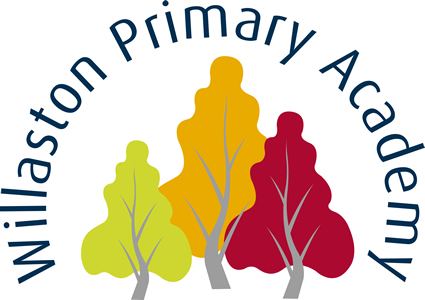Computing
💻Intent
At Willaston Primary Academy, we believe that a high-quality computing education equips pupils to use computational thinking and creativity to understand and change the world. The intent of our Computing curriculum is to provide a comprehensive, engaging, and challenging experience that fosters a love for technology and enables pupils to develop essential digital skills. Our curriculum is designed to:
- Promote Digital Literacy: Ensure that all pupils are digitally literate, enabling them to use technology effectively and safely in various contexts.
- Encourage Problem-Solving Skills: Cultivate resilience and logical thinking through programming and algorithmic problem-solving activities that challenge pupils to think critically.
- Foster Creativity: Inspire creativity in pupils by encouraging them to design, create, and produce digital content using various media.
- Prepare for the Future: Equip pupils with the skills they need to thrive in an ever-evolving digital landscape, including an understanding of emerging technologies and their societal impacts.
- Enhance Cross-Curricular Links: Integrate Computing across the curriculum, demonstrating its relevance and application in various subjects such as Maths, Science, and Art.
💻Implementation
- We deliver the computing curriculum through both weekly explicit lessons and a broad range of cross-curricular experiences including STEM challanges.
- We use Teach Computing and Barefoot Computing to support our staff in delivering high-quality teaching with learning carefully sequenced in order to deepen understanding of key concepts and allows all pupils to achieve their full potential. It provides immense flexibility, strong cross-curricular links and has the flexibility to adapt to current events.
- We have full access to the National Online Safety materials for pupils and all staff. The training materials from National Online Safety have equipped staff with the skills to support and protect pupils from online harm. There are also materials available for parents, allowing them to be active participants in their child’s online world.
- The learning journey that the children experience allows them to be ready for life-long learning and supports them in being ready for the next stage in their development and the world around them.
- We are able to create lasting memories through visitors teaching STEM lessons and by having the relevant equipment to enhance the curriculum.
- We have a range of equipment available including desktops, iPads, laptops and beebots. We also have the opportunity to borrow specialised equipment from local hubs in order to ensure high quality teaching and to enhance the learning journey.
- Homework is set using SumDog, Accelerated Reader and SeeSaw – this all reinforces the importance of computing for developing life-long learners.
- Teachers plan the delivery of the computing curriculum carefully to enable children to select the best equipment and to use it effectively.
- Pupils have the opportunity to become photographers, website developers, treasure hunters and time travellers through our rich and varied curriculum.
Assessment
Computing is assessed continuously by teachers. Through the Teach Computing assessment criteria, they are able to judge whether pupils are meeting the learning objectives during lessons and by analysing finished products. Teachers are able to adjust activities to support or challenge as appropriate. Termly digital assessments are carried out to enable teachers and leaders to assess knowledge.
💻IMPACT
The impact of our aspirational Computing curriculum is displayed in several key areas:
-
Pupil Engagement and Enjoyment: Pupil voice and observations show that children demonstrate high levels of engagement and enthusiasm for computing lessons, often expressing excitement about developing their skills.
-
Skill Development: Children develop skills across all year groups, with many pupils showcasing exceptional coding, computational thinking, and digital content creation skills by the time they leave Year 6.
-
Real-World Application: Children are able to articulate the relevance of their computing skills to everyday life and future career opportunities. Projects demonstrate creativity, collaboration, and problem-solving.
-
Digital Citizenship: Willaston children have a clear understanding of safe and responsible online behaviour, embodying the principles of digital citizenship and showing respect for one another online.
-
Community Engagement: Our children are proud and we involve parents and the wider community in computing initiatives, such as our FWSA who help to fund computing initiatives such as Sphero robots, laptops and ipads.
By delivering a vibrant and impactful Computing curriculum, we ensure that our pupils are prepared not just for their future studies but for lifelong digital literacy and engagement in an increasingly technology-driven world.
